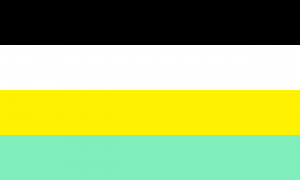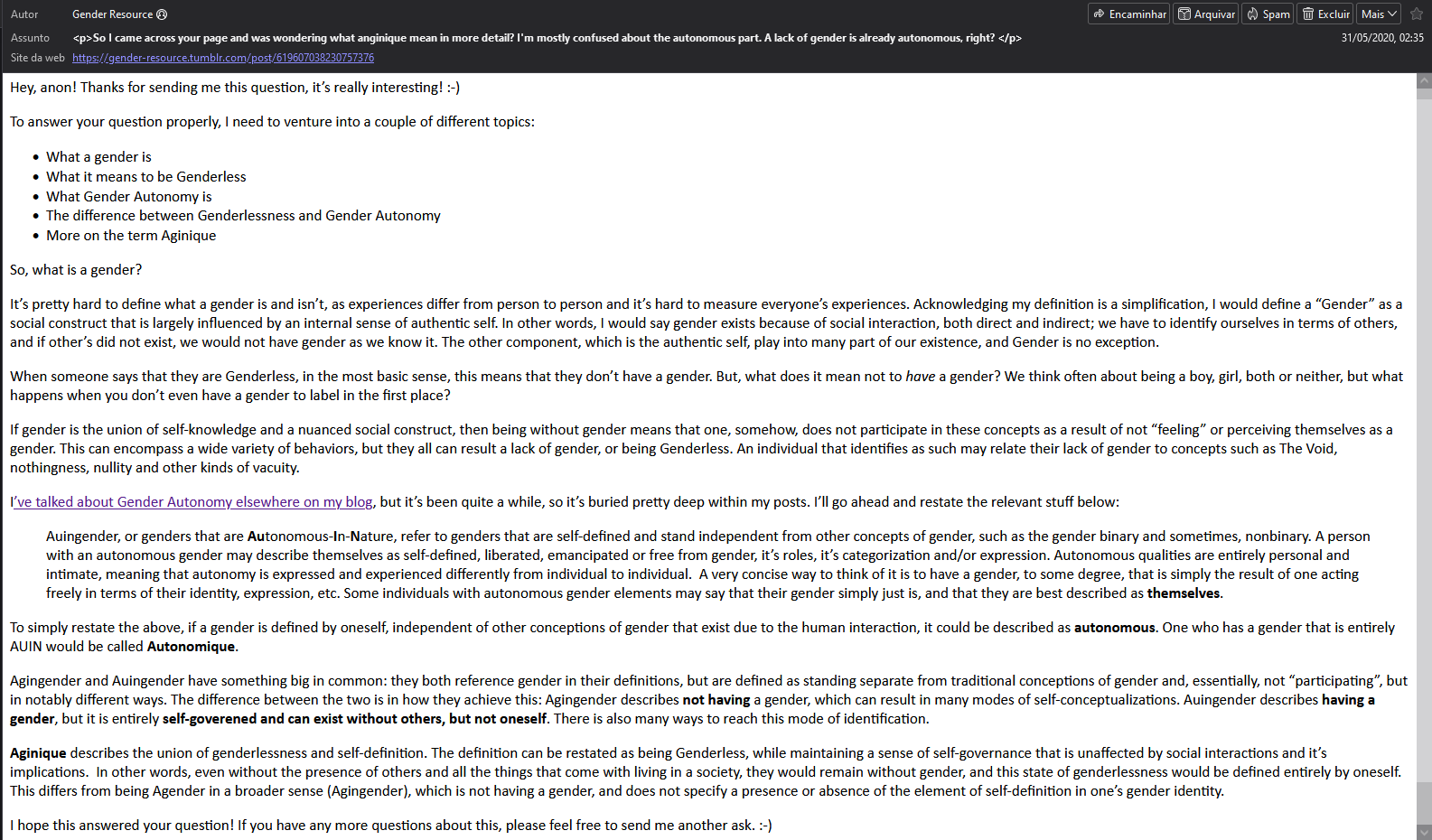
Bandeira aginique
Aginique é um termo que descreve uma ausência de gênero autônoma, ou uma identidade de gênero que é simultaneamente autônoma e relacionada à ageneridade.
Essa identidade foi cunhada explicitamente dentro dos termos guarda-chuva ageegênero (para identidades do espectro agênero) e aueegênero (para identidades de gênero autônomas). Para aprender sobre o conceito de autonomia de gênero, a leitura da página aueegênero é recomendada.
Em resposta a uma pergunta sobre se uma ausência de gênero já não seria autônoma por si só, Gent (antigamente gender-resource no Tumblr, mas cujo blog original foi deletado) disse que a distinção estaria em um senso de autogovernância que não é afetado por interações sociais e suas consequências. Isto é, alguém que é aginique acredita que este seria o caso não importa o sistema de gênero da sociedade ao redor ou a existência de uma sociedade, enquanto outras pessoas no espectro agênero podem considerar que é a sociedade ao redor que faz com que estejam no espectro agênero.
O termo aginique é atribuído a arco-pluris no Tumblr, embora tenha sido postado por Gent em uma lista de aueegêneros em 30 de abril de 2020 e posteriormente de forma individual com uma bandeira em uma postagem de 18 de maio do mesmo ano. Gent se credita pela bandeira, a qual é dividida em faixas com os seguintes significados:
- Preta: ausência de gênero;
- Branca: autonomia de gênero;
- Amarela: isolamento do binário de gênero e de concepções convencionais de gênero;
- Verde menta: ser sem gênero.
O termo aginique é idêntico ao utilizado na língua inglesa. Sua etimologia é AGIN (agender in nature, agênero em natureza) e ique como em maverique.
Links adicionais:
- Aginique – Gender Resource (Wayback Machine)
- Aginique – Termos NHINCQ+
- A Newly Defined Family of Genders (Autonomous Genders) – Gender Resource (Wayback Machine)
Captura de tela de versão arquivada de uma pergunta respondida por Gent sobre se faz sentido falar sobre uma ausência de gênero autônoma:
